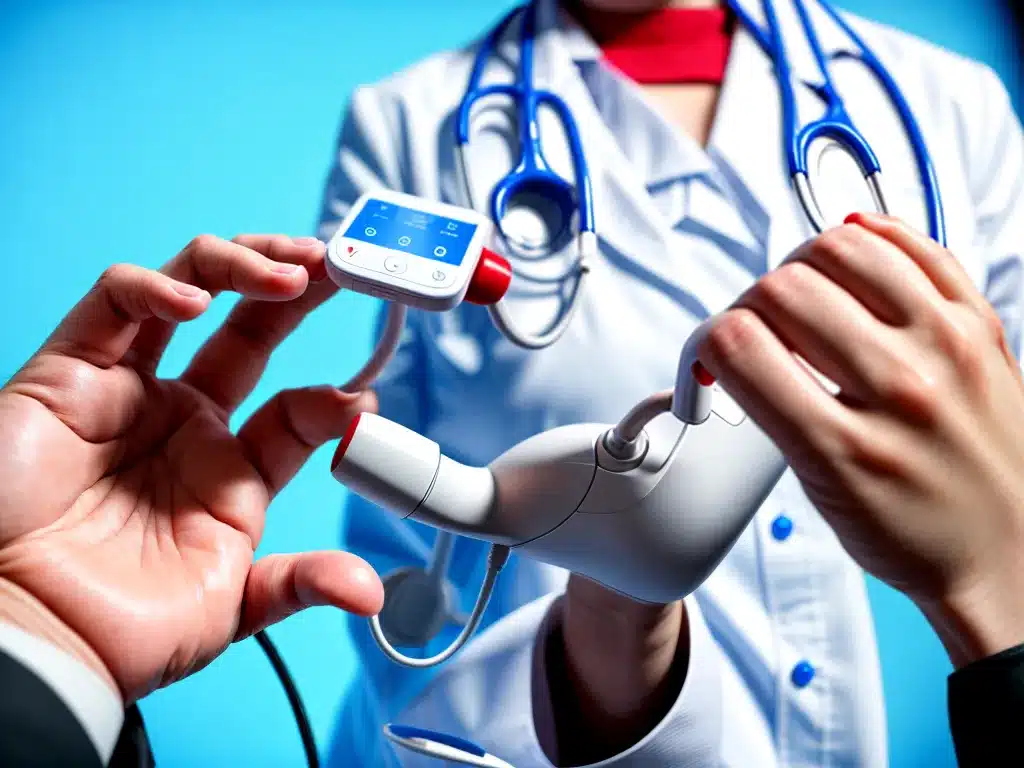
Introduction
Artificial intelligence (AI) is transforming healthcare in exciting new ways. One of the most promising applications is in medical imaging and diagnostics. Google has been at the forefront of developing AI systems for healthcare, with the goal of making diagnostic tests faster, more accessible, and more accurate. In this article, I will explore how Google’s AI is revolutionizing healthcare diagnostics.
How AI Can Analyze Medical Scans and Images
One of the most common uses of AI in healthcare is to analyze medical images like X-rays, CT scans, and MRI scans. These images contain a wealth of information that can be difficult for the human eye to decipher. AI systems can be trained to identify abnormalities and patterns in images that may indicate disease.
For example, Google’s deep learning system was able to detect breast cancer in mammograms with greater accuracy than human radiologists. The AI system could reduce false positives and false negatives. This could significantly improve early detection and survival rates for breast cancer.
AI can also analyze images to provide quantitative data. For example, AI systems can segment and measure organs, tumors, or areas of infection. This data augments the qualitative visual assessment conducted by radiologists.
Computer vision and deep learning allow AI systems to “see” and interpret images like a specialist. With enough training data, they can often surpass human performance.
Advantages of Using AI for Medical Diagnostics
Using AI for imaging analysis and diagnostics provides several key advantages:
-
Speed: AI systems can analyze scans and images almost instantaneously. This allows doctors to get results faster and begin treating patients sooner.
-
Accuracy: AI reduces human error and fatigue. It also detects patterns human doctors may miss, leading to fewer false negatives.
-
Consistency: AI performs every analysis in the same way, eliminating variability between different doctors or institutions.
-
Accessibility: AI could expand access to diagnostic imaging in remote areas through teleradiology. Images can be analyzed quickly from anywhere.
-
Objectivity: AI is impartial in its analysis. It eliminates subjective factors and biases that doctors may unknowingly introduce.
Google’s Diagnostic AI Projects
Google is exploring the use of its AI capabilities for a wide variety of diagnostic applications. Here are some key projects:
Lung Cancer Screening
Google AI research published results in Nature showing its deep learning model could predict lung cancer with greater accuracy than radiologists by analyzing CT scans. This could improve screening and reduce false positives.
Breast Cancer Screening
As mentioned earlier, Google showed its AI model could reduce false positives and false negatives in mammogram analysis. This could greatly assist radiologists and improve cancer detection.
Diabetic Retinopathy Diagnosis
An AI system created by Google and partners was approved by the FDA after clinical trials showed it could identify signs of diabetic blindness from retinal scans. This helps doctors diagnose the condition earlier.
Brain Tumor Diagnosis
Google Brain researchers used AI to classify and segment brain tumors in MRI scans. This could help doctors plan surgery and radiation therapy.
COVID-19 Prognosis
A Google Research paper demonstrated using AI with chest X-rays to predict the course of COVID-19 progression in patients. This could aid treatment decisions.
Challenges of Implementing Diagnostic AI
While diagnostic AI holds great promise, there are challenges to overcome before it gains widespread adoption:
-
Regulation: Strict testing and validation is needed to gain regulatory approval of AI as safe and effective for patient care.
-
Liability: Questions remain around assigning legal responsibility if an AI system makes an error.
-
Explainability: It can be difficult to understand how deep learning AI systems arrive at conclusions. More research is needed to make them more transparent.
-
** Clinician acceptance**: Doctors must gain trust in AI to incorporate it into their diagnostic workflows. Gradual integration can build confidence.
The Future is Bright for AI Diagnostics
Google is just scratching the surface of what’s possible with artificial intelligence in healthcare. With continued research and thoughtfully designed clinical validation studies, AI diagnostics will become increasingly accurate and reliable.
AI will not replace doctors – it will augment their abilities. But it promises to dramatically improve the accuracy of tests and scans that provide the foundation for data-driven care. This will ultimately lead to better outcomes and quality of life for patients. Google’s pioneering work in this field means AI will likely become an invaluable diagnostic partner for healthcare providers worldwide.












